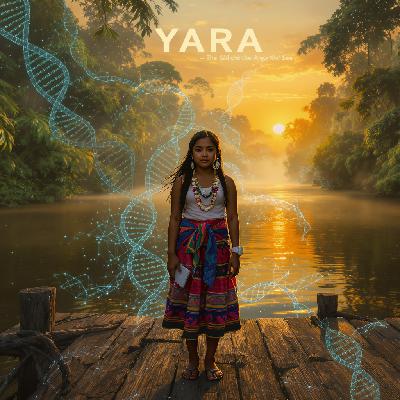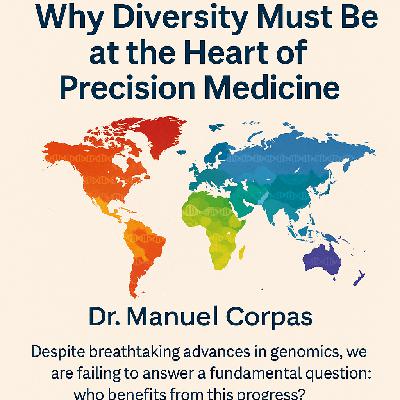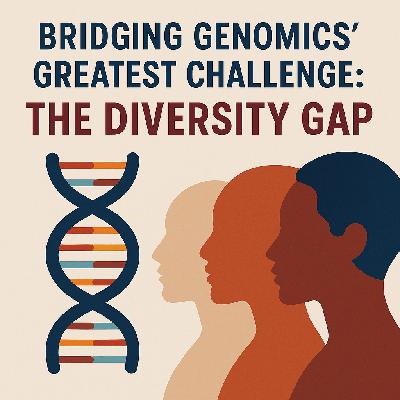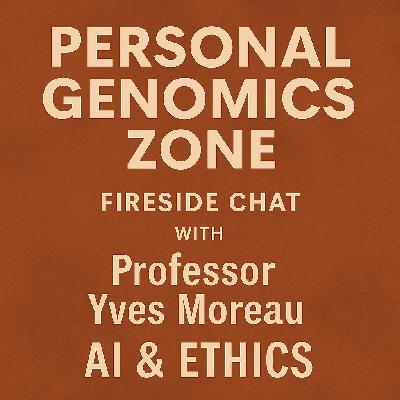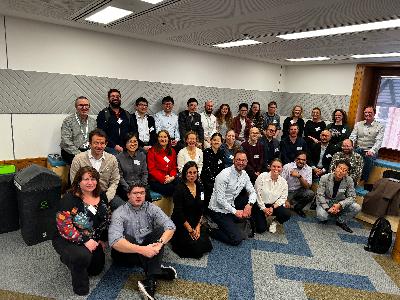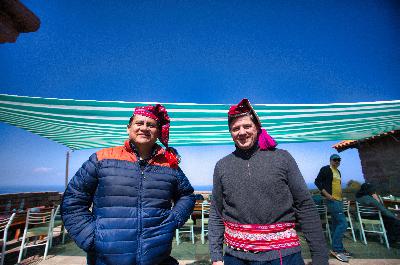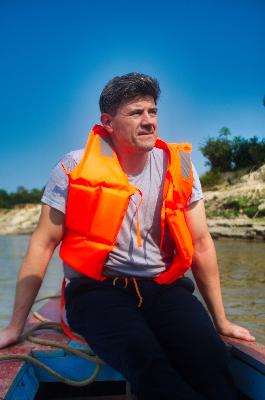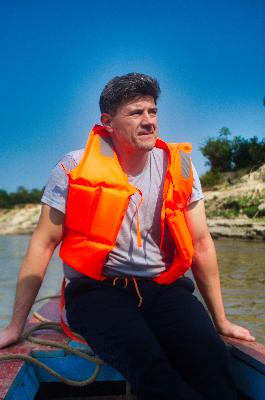Unlocking the Future of Genomics Education
Description
Here I provide some highlights of the visionary presentation that Jason Williams, Assistant Director, External Collaborations for the DNA Learning Center, Cold Spring Harbor Laboratory, gave at his invited talk at the University of Westminster on Friday 22nd, November 2024.
As technologies like genomics and machine learning redefine how we understand and interact with the world, Jason Williams, a leader in science education and training, recently shared his insights on making cutting-edge science accessible to underserved communities. Here’s a look at some key themes from his presentation, which you can also watch in the YouTube video below or listen in my podcast.
<figure class="wp-block-embed is-type-video is-provider-youtube wp-block-embed-youtube wp-embed-aspect-16-9 wp-has-aspect-ratio">
<figure class="wp-block-audio"></figure>
Williams emphasised the importance of empowering disadvantaged communities with scientific knowledge and tools. At the DNA Learning Center at Cold Spring Harbor Laboratory, where he works, students from diverse backgrounds are introduced to molecular biology and genomics through hands-on experiments. From transforming bacteria to sequencing DNA, these programmes aim to inspire students and provide them with skills that are often inaccessible in traditional school systems.
Impact in Numbers:
- Over half a million students interact with materials developed by the centre each year.
- Special programmes mentor minority and disadvantaged students, supporting their college applications and helping them pursue careers in STEM.
One of the most exciting innovations discussed was Oxford Nanopore sequencing, which allows real-time DNA analysis using a handheld device. This technology has dramatically lowered the cost and expertise barriers for genomic research, enabling high school students to sequence genomes within a week.
Some fascinating applications:
- Environmental Studies: Students sequenced chloroplasts from plants and soil samples.
- Consumer Advocacy: A high school team discovered that medicinal supplements labelled as “Ginkgo biloba” contained no ginkgo DNA but were primarily rice—prompting action from authorities.
Williams highlighted a growing challenge: as biology becomes increasingly data-driven, traditional curricula struggle to keep pace. He advocates for integrating computational skills like Python programming and machine learning into biology education. However, he also recognises the need for simplicity, suggesting tools and workflows that allow students and educators to focus on discovery rather than coding complexity.
Equity in genomics isn’t just about affordability—it’s also about ensuring diverse voices and populations are included in research. Williams pointed to efforts like the Native American Biobank and initiatives in Nigeria and Puerto Rico, which aim to decentralise genomic research. By training local scientists and empowering them with tools like nanopore sequencers, these efforts combat the exploitative practices of “helicopter science,” where external researchers extract data without local involvement.
To scale these efforts, Williams and his team have developed innovative training programmes for educators:
- Short Workshops: Designed to introduce cutting-edge technologies like nanopore sequencing to teachers in just a few days.
- Community Building: Networks of trained educators share resources, ensuring that knowledge spreads and grows.
- Principled Approaches: The “Bicycle Principles” paper outlines best practices for effective short-term training, including building assessment mechanisms to ensure real learning.
Williams underscored the importance of community science in fostering trust and interest in STEM. Initiatives like public roundtables and interviews with scientists (e.g., with the first Crispr-treated sickle cell patient) create meaningful conversations that demystify science and make it relevant to everyday life. These efforts empower students to be ambassadors of science in their communities.
One of Williams’ most ambitious projects is a new STEM education and research centre in Puerto Rico. Located on the site of the iconic Arecibo Observatory, this facility will house state-of-the-art labs and community programmes, blending traditional science with cutting-edge genomics and computation. It’s a step towards making advanced scientific education a global reality.
Final Thoughts: A Vision for Inclusive STEM
Jason Williams’ talk was a rallying cry for making science accessible, equitable, and exciting. By combining cutting-edge tools with an emphasis on hands-on learning, he’s helping to train the next generation of scientists while addressing disparities in education and research. His work is a powerful reminder that science isn’t just for the elite—it’s for everyone, everywhere.


